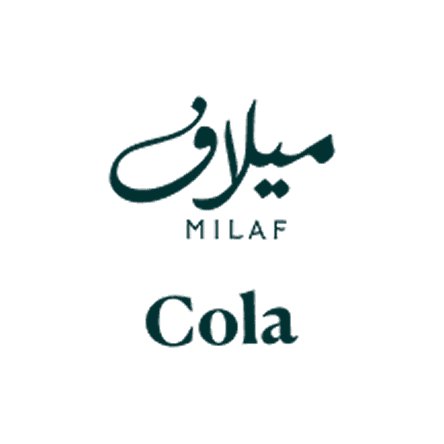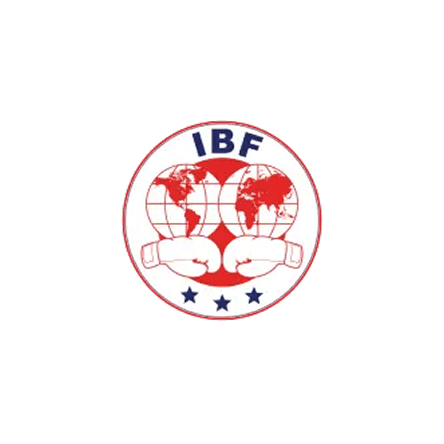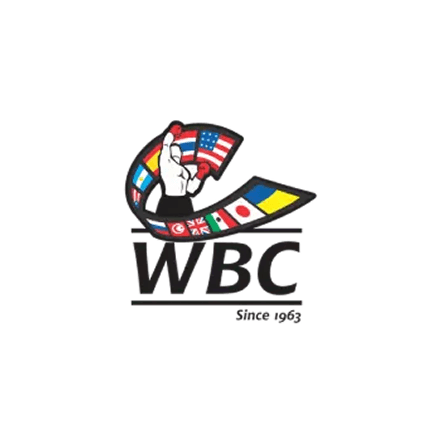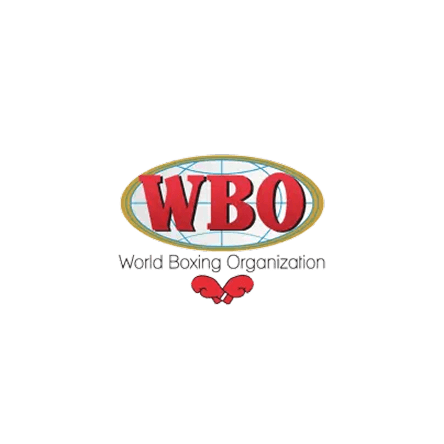

Unbeaten Welterweight Rohan Polanco At Forefront Of Dominican Boxing Renaissance
Jul 26, 2025
12 min read
Unbeaten welterweight Rohan Polanco is one of boxing’s best prospects and has become one of the centerpieces in the emergence of talented fighters from the Dominican Republic.
As Rohan Polanco was playing basketball with his friends in Santo Domingo, Dominican Republic, his attention was drawn elsewhere.
Around the corner was a boxing gym. Curiosity eventually drew the 13-year-old to the gym and he signed up to join. The rest is history.
Thirteen years later, Polanco is one of boxing’s best prospects and has become one of the centerpieces in the emergence of talented boxers from the Dominican Republic.
“I used to play baseball, but my favorite sport was basketball,” Polanco told The Ring. “The first time I put on gloves, I fell in love. It was like love at first sight, and it came really easy to me because I really liked it. My mom would send me to baseball, but I wouldn't go. I preferred to stay in boxing, and because I love boxing, it came so easy to me.”
Polanco (16-0, 10 KOs), who is ranked No. 7 by the WBO and No. 11 by the WBC at welterweight, returns to the ring on Saturday night to face Quinton Randall (15-2-1, 3 KOs) in a 10-round bout at the Madison Square Garden Theater in New York on the undercard of Xander Zayas vs Jorge Garcia Perez on Top Rank’s last show on ESPN. Also on the same undercard, An undefeated featherweight prospect from the Dominican Republic, Yan Santana (14-0, 12 KOs), faces former title challenger Aaron Alameda (30-2, 17 KOs).
Polanco, 26, and Santana, 25, are part of a wave of rising prospects from the Dominican Republic. Middleweight Euri Cedeno (12-0-1, 11 KOs) is another promising fighter.
The Dominican Republic has two world champions, WBC middleweight titleholder Carlos Adames and WBA junior flyweight champ Erick Rosa (8-0, 2 KOs), who will make his first defense against the undefeated Kyosuke Takami on Wednesday in Japan. There were three champions from the island before Alberto Puello (24-1, 10 KOs), a two-time junior welterweight champion, lost his WBC title via narrow majority decision to Puerto Rico’s Subriel Matias (23-2, 22 KOs) on July 12 at Louis Armstrong Stadium in Flushing, New York.
Alongside them is a multitude of fighters who have cracked the top 15 at junior welterweight in the four sanctioning bodies; Hendri Cedeno (16-0, 12 KOs), who is the older brother of Euri, Alfredo Santiago (17-2, 8 KOs), Michel Rivera (26-1, 14 KOs) and Elvis Rodriguez (17-2-1, 13 KOs).
Hector Luis Garcia and Puello, who grew up in San Juan de la Maguana, won world titles on the same card in August 2022. Their wins marked the first time two fighters from the Dominican Republic won world titles on the same night.
Jeison Rosario (24-5-2, 18 KOs) won the IBF and WBA junior middleweight titles with a fifth-round stoppage in 2020 of Julian Williams, who was fighting in his hometown of Philadelphia, Pennsylvania, making him the only unified champion from the Dominican Republic during the four-belt era.
Edwin De Los Santos (16-2, 13 KOs) had one shot at a world title when he fought Shakur Stevenson for the vacant WBC lightweight belt in November 2023, but he lost by unanimous decision. The hard-hitting southpaw from Santo Domingo was on the cusp of a second shot at gold against Keyshawn Davis for his WBO lightweight title on June 7, but the champion missed weight by more than four pounds and it was called off.
“It’s almost every division from middleweight down,“ boxing author and historian Jose Corpas told The Ring. “This is the deepest pool [of Dominican talent] that you’ve seen.”
“We have more support,” Puello told The Ring. “Now, it’s easier for Dominican boxers to go everywhere, and mostly to the USA. That's the door we have open right now. That's why you see a lot of fighters making a lot of noise.”
“I never remember seeing something like that,” two-division champion Joan Guzman told The Ring. “Dominican fighters are everywhere in Puerto Rico, America [and] Europe. In different places, there are a lot of Dominican fighters. That feels great.”
Cruz brothers
The first fighter from the Dominican Republic to win a world title was Carlos “Teo” Cruz (42-13-2, 14 KOs), who spent much of his career training and fighting in Puerto Rico, like many fighters from the Dominican Republic at that time. He became the WBC lightweight champion when he defeated Puerto Rico’s Carlos Ortiz by split decision in Santo Domingo on June 29, 1968. Cruz's triumph fulfilled the groundwork that was first laid by Dominicans Luis Emilio Perez (40-10-9, 12 KOs) and Carlos Perez (24-15-2, 12 KOs).
“When we start talking about Dominican history in boxing, you need to mention Carlos Teo Cruz,” Puello said. “[He was] the first one. He was the person who opened the door for all the champions you see now and all the champions who will come in the future. So that means a lot for me. Cruz was the main guy who opened the door, and now everybody’s coming through.”
Cruz won two fights after winning the title, including a unanimous decision over Mando Ramos (37-11-1, 23 KOs), but lost in a rematch by 11th-round stoppage due to cuts in February 1969. Cruz won four straight fights following the loss to Ramos, but a chance to become a two-time champion never came to fruition.
Cruz and his wife, Mildred, and their two children died in a plane crash in February 1970, on a flight from the Dominican Republic to Puerto Rico.
“The headlines in Puerto Rico said two countries are mourning today,” Corpas said. “Carlos lived in Puerto Rico and was married to a Puerto Rican. When he died, both the Puerto Rican and the Dominican newspapers were saying, ‘We're mourning right now.’”
After his death, his younger brother, Leonardo “Leo” Cruz, went on to win the WBA junior featherweight title in a rematch against Argentina’s Sergio Victor Palma (52-5-5, 20 KOs) in June 1982. The win made Teo and Leo (41-7-3, 18 KOs) the first Latin brothers to win world titles. Leo defended his title three times, which still stands as the record for title defenses of one belt for a boxer from the Dominican Republic.
Good fighters came and went from the Dominican Republic before, during and after Leo’s reign as champion. Eleoncio Mercedes won the WBC flyweight title with a split decision over Freddy Castillo in November 1982. Miguel Montilla ascended the ranks but fell short twice against Colombia’s first world champion, Antonio Cervantes, in 1979 and '80, and Aaron Pryor in 1982. Cervantes and Pryor are in the International Boxing Hall of Fame.
Rafael Torres became the first WBO minimumweight champion in 1989, while Hector Acero Sanchez, Julio Cesar Green and Luis Santana won world titles in the 1990s.
Including Teo and Leo, 27 fighters from the Dominican Republic have won world titles. Among them, Guzman and Katy Wilson Castillo are the only two-division champions. Guzman and Leo are the only fighters to notch multiple title defenses of a single belt.
Joel Guzman influence
However, consistent opportunities were still scarce for fighters from the Dominican Republic.
“In the '90s, there were a lot of good Dominican boxers,” Guzman told The Ring. “But because they were seen here as opponents, they were good, but they were offered a fight when they were not ready, or they did it for the money. I was one of those who changed the mentality of the new school of Dominican boxing.
“When I came here after the Olympics in 1996, there weren’t a lot of good Dominican fighters here. Some people would see me sparring and think I’m Black because I look different. It’s the reason I started putting the Dominican flag on my trunks because everybody thought, ‘Oh, he’s Dominican, but he’s from the Bronx,’ but I didn’t speak English. I’m from DR.”
The seeds for this renaissance were largely planted by Guzman, 2008 Olympic gold medalist Felix Diaz and Cuban trainer Armando Hernandez, who is the longtime coach for the Dominican National Team. Guzman (34-1-1, 21 KOs) won titles at junior featherweight and junior lightweight. Before that, he went 310-10 as an amateur and won the Pan American Games in 1995 and fought at the '96 Summer Olympics in Atlanta, before turning pro the following year. At his peak, Guzman was one of boxing’s best talents in the lower weight classes.
Guzman fought in the Dominican Republic for the first time in over three years in December 2006 to make the first defense of his WBO junior lightweight title. He delivered a dominant showing en route to a unanimous decision victory against Antonio Davis.
Guzman’s strong performance came with numerous prominent promoters in attendance, including Oscar De La Hoya, International Boxing Hall of Famer and Golden Boy Promotions CEO. Dominican journalist and YouTuber “Broadway Joel” credits Guzman’s performance against Davis as a turning point in drawing more attention to boxers from the country.
"While they were there, they were like, ‘Hey, man, if they’re producing them like Joan Guzman, we want to sign a few.’ Guys like Argenis Mendez, Claudio Marrero, Juan Carlos Payano, a lot of those guys got that opportunity because when Joan Guzman had that show, all those promoters went over there and were scouting, essentially. So, I think as far as the backing [and] the support, I think where that started was from that show. That's the one where a lot of people started finding more interest in investing in Dominican boxers.
“Joan came across at a time when you had much more access to see things. He had cable, he had Internet, so he profited from that, plus he was a beautiful fighter to watch. Joan Guzman was very influential.”
“I wanted to change Dominican boxing,“ Guzman said. “My first defense of the title in the Dominican Republic, a lot of promoters were there and Dominican boxing changed. Oscar De La Hoya and a lot of good promoters were there and started signing Dominican fighters.”
Payano went on to be a two-time Olympian (2004 and '08) and won the WBA bantamweight title in 2016.
Hernandez has played a vital role in the development of the fighters who have emerged from the Dominican Republic. Few countries, if any, have had more sustained success on the amateur scene and in the Olympics than Cubans, and Hernandez brought that school of teaching to the Dominican Republic. The discipline that Hernandez has instilled in his fighters slide has extended well beyond boxing.
“We had a trainer over there, Armando Hernandez, who we've had since we were kids, and he implemented discipline in us,” Polanco said. “He taught us discipline, and that's why Dominican boxing is changing a lot, because we grew up with that discipline and the discipline that you need to be successful in professional boxing.”
“When I do my interviews, when I ask the same question you ask, his name comes up, and something specifically Elvis Rodriguez told me was he teaches you discipline,” Joel said. “He teaches you how to be structured in everything, not just boxing.”
With Hernandez’s guidance, the Dominican Republic has produced more quality prospects and had two fighters win bronze medals at the 2024 Paris Olympics. Light heavyweight Cristian Javier Pinales at light heavyweight and flyweight Yunior Alcantara Reyes became the first Dominican tandem to win medals at the same Olympics.
Diaz defeated reigning gold medal winner, Thailand’s Manus Boonjumnong, to win the gold at junior welterweight at the 2008 Summer Olympics in Beijing, China, making him the first and only fighter from the island to accomplish the feat. Pedro Nolasco was the first fighter from the Dominican Republic to medal the Olympics in 1984 in Los Angeles, where he won bronze at bantamweight.
Corpas also credits Shuan Boxing Promotions for its role in putting on events and helping get more fighters from the Dominican Republic more opportunities.
“Those were pivotal moments,” Corpas said of Guzman, Diaz and Shuan Boxing. “Then you had all the Cuban trainers come into the Dominican Republic. Shuan Boxing, they were one of the first steady, reliable Dominican promoters that were putting on regular shows. They didn't have any stars until recently, but you get all that work. You get all that practice and now the trainers have become better, the gyms can operate, and it has a trickle-down effect and that's where you've seen a lot of that. Those are the roots, and now you see the flowers coming out.”
Polanco could be the future
Polanco isn’t far off from earning his first world title shot.
“He’s definitely the highest-touted prospect,” Corpas said. “Whether or not he’s the best for me remains to be seen, but he’s definitely the highest touted. They’ve really given him a lot of love and support.”
Guzman agreed.
“Rright now, Rohan is the most talented fighter I can see,” Guzman said. “I like the attitude he’s got. He’s like, ‘I’m the man in the ring.’ I like the attitude he’s got because no one sees a Dominican fighter with this kind of attitude.”
Baseball has long been the sport most synonymous with the Dominican Republic. With the success numerous boxers have had, boxing has gone from a sport one would be taking a chance on the island to a more than viable alternative.
“If you want to start in baseball, you need to have more money because you need to pay an instructor [or go to a] baseball school,” Puello said. “When we tried to go to baseball, we didn’t have enough money to pay for all the things necessary to start. When we go to boxing, the teacher says you only need a coach, a pair of shoes, a shirt and you can start now.”
“Soon 10 more years, boxing will be the same as baseball,“ Guzman said.
The groundwork was laid by Teo Cruz, Leo Cruz, Guzman and other former champions and fighters who fell just short of winning a world title, making a name for themselves when it wasn’t as prominent in the Dominican Republic. With the growing support of fans there and top promoters, Polanco could be the one who takes boxing to a stratosphere it has never reached.
“Being one of the faces of boxing in the Dominican Republic means proudly representing my country,” Polanco said. “It involves not only the responsibility to compete and win, but also to inspire young athletes and promote boxing as a sport. It’s also an opportunity to grow the sport in the nation and showcase Dominican talent to the world.”
Analysis
Noticias de combate

Next
Jai Opetaia Defends Ring, IBF Cruiserweight Titles vs. Huseyin Cinkara On Dec. 6
Can you beat Coppinger?
Lock in your fantasy picks on rising stars and title contenders for a shot at $100,000 and exclusive custom boxing merch.

Partners








































